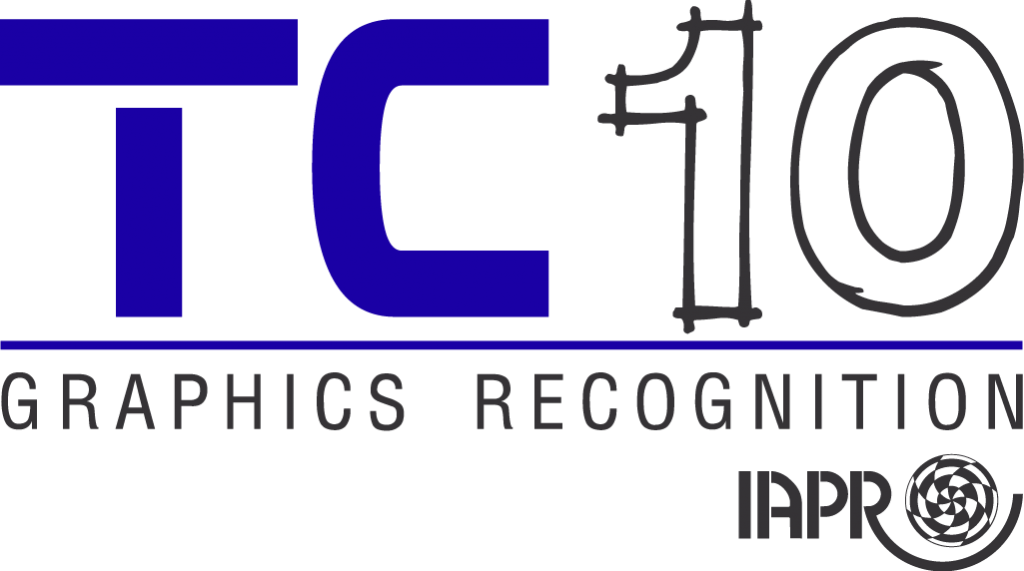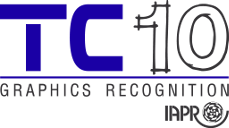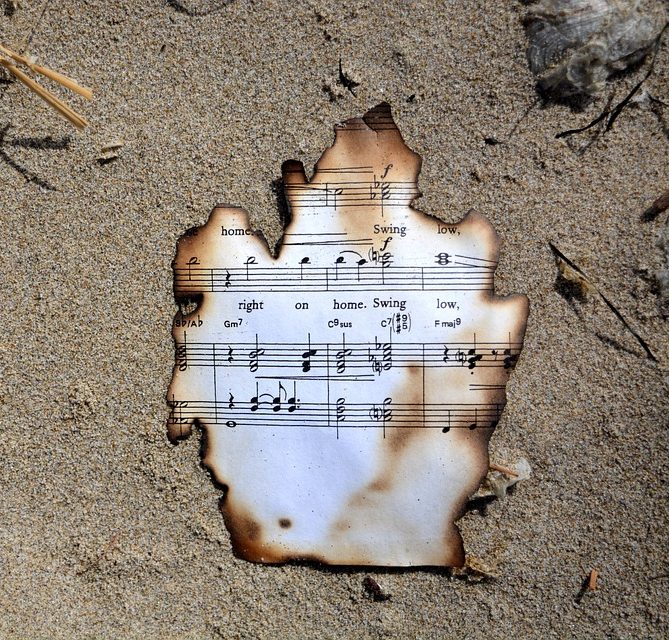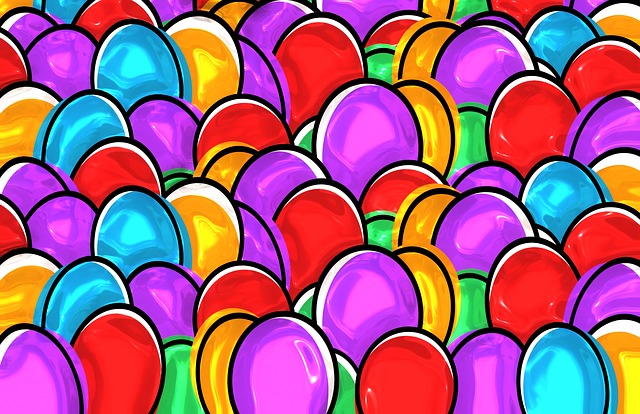

Welcome to the March edition of the TC10 newsletter.
Due to coronavirus disease, many conferences and workshops have postponed their submission deadlines such as ICFHR, ICPR, and WTDD (CVPR workshop).
Also, some major events are postponed and/or relocated: DAS2020 will be held in Beijing instead of Wuhan and postponed to July, 2020. Similarly, ICPR 2020 is postponed to January, 2021.
This pandemic also affects the review process of the GREC-IJDAR special issue, please be patient.
Please take care and keep safe from COVID-19.
Christophe Rigaud
IAPR-TC10 Communications Officer
Table of content:
1) Upcoming deadlines and events
2) IJDAR article alert
3) CVPR 2020 Workshop on Text and Documents in the Deep Learning Era (extended deadline)
4) ICPR 2020 conference (postponed)
5) ICFHR conference (extended deadline)
6) Job offers (9 new)
Call for Contributions: please contribute to TC10 newsletters, by sending any relevant news, event, notice, open position, dataset or link to us on iapr.tc10[at]gmail.com
1) Upcoming deadlines and events
2020
- Deadlines:
- March 31, paper submission deadline for WTDDLE 2020 (extended)
- April 10 paper submission deadline for ICFHR 2020 (extended)
- April 15, first round paper submission deadline for ICPR 2020 (extended)
- June 8, paper submission deadline for S+SSPR 2020
- Events:
- June 16-18, conference CVPR 2020, Seattle, Washington, USA
- July, second round paper submission deadline for ICPR 2020
- July, workshop DAS 2020, Beijing, China (new location & dates)
- August 23-28, conference ECCV 2020, Glasgow, UK
- September 7-10, conference ICFHR 2020, Dortmund, Germany
- September 8-11, workshop S+SSPR 2020, Padua, Italy
2021 and later
- January 10-15, 2021, conference ICPR 2020, Milan, Italy (new dates)
- September 5-10, 2021 conference ICDAR 2021, Lausanne, Switzerland
- December, 2022 conference ICFHR 2022, Hyderabad, India
2) IJDAR article alert
Volume 23, Issue 1, March 2020
https://link.springer.com/journal/10032/23/1
- Even big data is not enough: need for a novel reference modelling for forensic document authentication
Utpal Garain, Biswajit Halder - Document analysis systems that improve with use
George Nagy - Total-Text: toward orientation robustness in scene text detection
Chee-Kheng Ch’ng, Chee Seng Chan… - A unified method for augmented incremental recognition of online handwritten Japanese and English text
Cuong Tuan Nguyen, Bipin Indurkhya… - Efficient and effective OCR engine training
Christian Clausner, Apostolos Antonacopoulos…
3) CVPR 2020 Workshop on Text and Documents in the Deep Learning Era (WTDDLE)
June 15, 2020, USA
https://cvpr2020text.wordpress.com
Overview
Understanding written communication through vision is a key aspect of human civilization, and should also be an important capacity of intelligent agents aspiring to function in man-made environments. As such, the analysis of written communication in images has been one of the oldest fields in computer vision. There are two major application domains for such methods: document understanding and scene text understanding. Document understanding goes over and above OCR, requiring layout analysis, handwritten text recognition, symbolic language interpretation etc., on anything from administrative and historical documents to mixed-type documents such as maps and diagrams. Understanding text in the wild, on the other hand, has already enabled applications such as image-based translation or autonomous navigation. In both cases, dealing with such high-level semantic content requires specific treatment that often departs from other areas in computer vision. While work on such problems has been carried out for many years, with synergies between document understanding and computer vision domains, reaching the high accuracy required for many applications is still a practical challenge. See more…
This workshop will comprise of the following:
- Invited and peer reviewed papers related to the call for papers below
- Keynote addresses by top researchers in the field
- A challenge on Document VQA aiming to advance state of the art in text and documents
Call for Papers
The topics of interest for the workshop include but are not limited to the following:
● Document modeling, and representations
● Document structure and layout learning
● Cleansing and image enhancement techniques for scanned documents
● Semantic understanding of scene OR document content
● Table identification and extraction from business documents
● Multi-lingual scene text and document understanding
● Character and text recognition
● Scene text detection and recognition
● Scene text Visual Question Answering
● Document Visual Question Answering
● Scene text detection and recognition
● Visual document retrieval
● Handwriting recognition
● Online Handwriting recognition
● Signature detection and verification
● Graphics recognition
● Applications of document analysis
● Document simulation and synthesis
Submissions
We are soliciting submissions of full length papers in PDF format, following CVPR 2020 submission guidelines. All submissions will be handled electronically via the workshop’s CMT Website. Papers are limited to eight pages, including figures and tables, in the CVPR style. Additional pages containing only cited references are allowed. Please refer to the following files (same as the CVPR 2020 main conference format) for detailed formatting instructions:
Paper submission and review site: https://cmt3.research.microsoft.com/WTDDLE2020
Challenge details
Please see the DocVQA challenge Web site at the Robust Reading Competition portal: https://rrc.cvc.uab.es/?ch=17
Important Dates
- Paper Submission Deadline: March 31, 2020 (extended)
- Notification to Authors: April 10, 2020
- Workshop Camera Ready Due: April 17, exact date to be announced
- Workshop Date: June 15, 2020
Organizers
General Chairs: Dimosthenis Karatzas – Computer Vision Centre, Autonomous University of Barcelona, R. Manmatha – Amazon AWS
Program Chairs: Alicia Fornes – Computer Vision Centre, Autonomous University of Barcelona, C.V. Jawahar – IIIT Hyderabad, Vijay Mahadevan – Amazon AWS
Organizing Chairs: Meng Wang – Amazon AWS, Jon Wu – Amazon AWS, Yuting Zhang – Amazon AWS
4) ICPR 2020 conference (postponed)
25th International Conference on Pattern Recognition
10-15 January 2021 – Milan, Italy (new dates)
ICPR 2020 is the premier world conference in Pattern Recognition. It covers both theoretical issues and applications of the discipline. We solicit original research for publication in the main conference. Topics of interest include all aspects of Pattern Recognition.
Given the COVID-19 situation in Italy and all over the globe, the organizers of ICPR2020 believe that unfortunately full normality will not happen soon, and it seems unlikely that people will feel confident about making travel plans to attend a conference in September. Due to this, we have decided to to shift the conference schedule to 10-15 January 2021 and at the same time employ a two-round review process (similar to WACV), with the first-round deadline on April 15, 2020 and the second-round deadline on July 2020.
Clarifications on the reviewing system and more information will appear on the ICPR2020 website soon.
We are considering offering a mixed virtual and in-person conference solution, so as to allow multiple participation options for people with different circumstances. We will share updates as soon as we have taken decisions on this.
SUBMISSION DEADLINES
Paper submission (first round): April 15th, 2020 (extended)
Paper submission (second round): July, 2020
Tutorials proposal: April 1st, 2020
Demos and Exhibits proposal: June 15th, 2020
General Chairs
Rita Cucchiara, Alberto del Bimbo, Stan Sclaroff
5) ICFHR 2020 conference
17th International Conference on Frontiers in Handwriting Recognition
September 7-10, 2020 – Dortmund, Germany
The International Conference on Frontiers of Handwriting Recognition (ICFHR) is the premier scientific venue in the field of handwriting recognition. This conference brings together international experts from academia and industry to share their experiences and to promote research and development in all aspects of handwriting recognition and applications.
The emergence of COVID-19 has caused disruption in every aspect of our professional and personal lives. In addition to care for family members no longer maintaining their regular schedules, many faculty are required to devote extra time to redesign courses to be taught online, and many corporations and universities are implementing new work-from-home measures. Given these disruptions that responding to the global health crisis has caused, the ICFHR organizing committee has decided to extend the submission date until April 10th.
SUBMISSION DEADLINES
Paper submission: April 10th, 2020 (extended)
Author notifications: June 8th, 2020
General Chairs
Gernot Fink, Lambert Schomaker
6) Job offers (9 new)
Please find more information in the following file:
— PhD position – Rochester Institute of Technology, USA (1 new) —
Computer Science PhD Position (start: Fall 2020)
Document and Pattern Recognition Lab – Department of Computer Science, Rochester Institute of Technology, USA
PhD Topic: Math formula extraction, recognition, and indexing
Advisor: Dr. Richard Zanibbi (https://www.cs.rit.edu/~rlaz)
The Document and Pattern Recognition Lab (dprl) at RIT is looking for a new PhD student to work on extraction, recognition, and indexing of formulas in large collections as part of the MathSeer project starting in Fall 2020.
The MathSeer project (https://www.cs.rit.edu/~dprl/mathseer) is a collaborativeeffort between RIT, Penn State, and the University at Maryland, College Park.We are working to create new technologies for math-aware search. This includesnovel search interfaces and engines that integrate text and math in order toimprove search of technical information both within and across subject domains.The project is funded by the National Science Foundation (USA) and the AlfredP. Sloan Foundation.
The dprl is a leader in math-aware search and recognition of math notation,particularly technologies for math formula entry, recognition, and search.Along with other members of the MathSeer team, we are overseeing the first ARQMath task at CLEF 2020 (Answer Retrieval for Questions on Math: https://www.cs.rit.edu/~dprl/ARQMath). We also recently led the CROHME 2019 competition at ICDAR 2019, the standard international benchmark for evaluation handwritten math recognition systems (https://www.cs.rit.edu/~crohme2019).
Questions about the position should be directed to the lab director, Richard Zanibbi (rxzvcs[at]rit.edu).
— PostDoc/senior – Luleå, Sweden (6 new)
Due to our recent success in research and the acquisition of funding we gladly announce that we have again 4 open post-doc stipends in the machine learning group here in Luleå, Sweden. If you know someone who might be interested, please inform them.
https://www.ltu.se/ltu/stipendier-priser/postdoc-stipendier?l=en
Furthermore, we have the option to hire two senior persons (also for longer periods than 2 years), if interested, I can give more information.
Best regards,
Marcus (marcus.liwicki[at]ltu.se)
— Research Engineer/PostDoc – IRISA/INSA Rennes, France (1 new)
Analysis systems for serial sources in collections of historical image documents
PDF version:
https://www-intuidoc.irisa.fr/en/postdoc-eurhisfirm
Important Dates
March 1, 2020 – August 31, 2021 Contract period
IRISA – Intuidoc
IRISA
is a joint research center for Informatics, including Robotics and
Image and Signal Processing. 850 people, 40 teams, explore the world of
digital sciences to find applications in healthcare,
ecology-environment, cyber-security, transportation, multimedia, and
industry. INSA Rennes is one of the 8 trustees of IRISA.
The Intuidoc team (https://www.irisa.fr/intuidoc) conducts research on the topic of document image recognition. Since many years, the team proposes a system, called DMOS-PI method, for document structure analysis of documents. This DMOS-PI method is used for document recognition, or field extraction in archive documents, handwritten contents damaged documents (musical scores, archives, newspapers, letters, electronic schema, etc.).
Position to be filled
- Position: Post-doctoral fellow / Research Engineer
- Time commitment: Full-time
- Duration of the contract: up to 18 months, starting as soon a possible
- Supervisors: Bertrand Coüasnon and Aurélie Lemaitre
- Indicative salary: Up to €36 000 gross annual salary (according to experience), with social security benefits
- Location: IRISA — Rennes, France
Missions
The post-doctoral fellow will join a team working on EURHISFIRM workflow. The goal is to extract information from images of financial documents from the 20th century. We mainly focus on two collections: yearbooks, which describes the companies and their administrators, and prices lists, which are newspapers showing the daily stock prices. Due to the large variety of those documents, it requires a flexible and easy-to-adapt document recognition system. It is based on a modelling of knowledge not only at the page level but also at the collection level in interaction with experts of the historical sources.
A first system has been designed, using DMOS-PI method. It uses a grammatical language, EPF (Enhanced Position Formalism), to describe a general page layout, with perceptive vision mechanisms, and an iterative analysis. The system also combines structural method with Deep Learning. For new collections, an adapted description of the document layout must be developed. This has to be done on a large range of structure levels: from very structured pages like table structures from stock exchange lists, up to a paragraph-oriented structures from yearbooks.
Some first experiments have been led on the recognition of “price lists” documents, on a specific French corpus. The objective of the work will be to generalize this system to other collections of price lists, from other countries. This requires to identify which are the common parts of price lists from each stock exchanges and countries, and how to make the system able to be adapted to a new collection in an easy way.
Applicant Requirements
- PhD, Master degree or Engineering degree in computer science
- Experience in document recognition, statistical analysis or deep learning.
- Fluent English
- Skills in grammars and languages and/or logical programming are nice-to-have.
Candidates should contact via email: Bertrand Coüasnon (bertrand.couasnon[at]irisa.fr) and Aurélie Lemaitre (aurelie.lemaitre[at]irisa.fr).
— Post-doc position – L3i – La Rochelle France (1 new) —
Title: Detection and verification of visual security devices in documents
The L3i laboratory has an open post-doc position in computer science, in the specific field of document image analysis and pattern recognition
Duration: 12 months
Position available from: April 1st, 2019
Salary: approximately 2100 € / month (net)
Place: L3i lab, La Rochelle University, France
Specialty: Computer Science/ Image Processing/ Document Analysis/ Pattern Recognition
Contact: petra.gomez[at]univ-lr.fr, sylvain.marchand[at]univ-lr.fr, jcburie[at]univ-lr.fr
Position Description
The L3i is a research lab of the University of La Rochelle. La Rochelle is a city in the south west of France on the Atlantic coast and is one of the most attractive and dynamic cities in France. The L3i works since several years on document analysis and has developed a well-known expertise in fraud detection.
The work done by the post-doc will take part of a project with a private company. The objective is to develop detection and verification methods of the security visual devices in order to check the authenticity of the documents. For example, some security visual devices consist in adding a hologram. However, many other security devices exist. The particularity will be to use the video stream of a mobile phone as the source of information. Some security devices will be studied to determine the ones that are able to ensure the authenticity of the documents. A specific acquisition protocol may be proposed to improve the robustness of the algorithms. Real-time implementation of the proposed methods will be necessary.
Qualifications
Candidates must have a completed PhD and a research experience in image processing and analysis, video analysis and pattern recognition. Some knowledge and experience in colour image/video processing are also recommended.
General Qualifications
• Good programming skills mastering at least one programming language like Java, Python, C/C++
• Good teamwork skills
• Good writing skills and proficiency in written and spoken English or French
Applications
A motivation letter and CV along-with list of publications should be addressed to: petra.gomez[at]univ-lr.fr, sylvain.marchand[at]univ-lr.fr, jcburie[at]univ-lr.fr
Copies of a few of the most relevant publications are welcome.
See the following file: https://iapr-tc10.univ-lr.fr/wp-content/uploads/2020/03/Post-Doc_IDECYS_final_GB-1.pdf
— Post-doc position – L3i – La Rochelle France (repost) —
Title : Recognition of text with variable styles in comics books
Duration: 12 months
Position available from: Mai 1st, 2019
Salary: approximately 2100 € / month (net)
Place: L3i lab, University of La Rochelle, France
Specialty: Computer Science/ Image Processing/ Document Analysis/ Pattern Recognition
Contact: Jean-Christophe BURIE (jcburie [at] univ-lr.fr)
Position description
See the following file: https://iapr-tc10.univ-lr.fr/wp-content/uploads/2019/05/post-doc-L3i_BD.pdf






